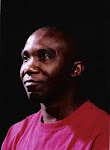When I say “independent film” what I’m really saying is “low budget” to “no budget” film production. These would include the films that may only have one or two investors or were financed by a rich aunt or uncle or relative or were even put together with the use of multiple credit cards. The number of these such productions being made every year far exceed the number of films being financed above the $1 million price range. I mention this first because if you’re an independent filmmaker (like me) than you’ve learned how to make the best of any budget no matter how big or small.
In order to be a good filmmaker many of us must also be good production managers (or at least hire a good production manager) to manage the day to day operations of film production. A production manager is responsible for realizing the visions of the producer and the director within the constraints of technical possibility. This involves coordinating the operations of various production positions from location, wardrobe, art direction, casting, etc. that would insure the success and completion of the production. Having been a production manager for many years on a wide variety of indie shorts and features I’ve learned some of the best techniques that will insure a great experience on any type of film production.
Although I’ve worked primarily on indie film productions these five elements to being a good production manager on an independent film can be used on any type of film production large or small and will be beneficial not only for production managers but individuals seeking to be in the management area of film production.
ELEMENT #1: GET IN AT THE BEGINNING OF PRE-PRODUCTION
There is nothing more important for any film production than to have a production manager in place at the very start of pre-production on a film. The PM’s job is to help coordinate and organize all of the other film departments as set forth by the producer and director. If the PM isn’t hired until actual principal photography, a lot of elements that would make the production run smoothly will not have already been set up and in place, which can cause problems during and possibly after principal photography. I recently came in as the PM at the last moment on the Unique Productions indie film Between Love & a Hard Place. Some of the major problems that occurred had to do with Call Sheets and Call Times and contacting the actors and crew when changes were made. On many occasions I could not get a hold of cast & crew simply because I was not their point of contact from the beginning of production. Because we live in an era where many people simply dismiss incoming phone numbers that they do not recognize, many of my phone calls and text messages were never answered. Another thing that happened is that since many of these very same cast & crew were in contact with different people throughout pre-production it made it very difficult for me to be in contact with cast & crew and not get second guessed all the time. By being on hand at the beginning of pre-production the cast & crew know the PM as their point of contact for both the director and producer and other important individuals on the production. The PM will also double check all paperwork before it is sent out to the rest of the cast & crew so that there are no confusions. On the Southlan-Films production Hell’s End I was brought in at the beginning of pre-production and was there when actors were cast and crew was chosen and contracts were signed so there were no mistakes of who cast & crew sought info from during and after production. Bringing the PM in at the pre-production stage just makes the film production go smoother, for everyone.
ELEMENT #2: BE ORGANIZED.
I cannot stress this enough. A PM must be extremely organized in order to juggle so many different aspects of a film’s production. Since the PM is responsible for coordinating so many departments in order to create one cohesive vision from the director and producer, he must also be the most organized and know what is going on with every department so that communication between all departments is smoother. While working on the Southlan-Films’ production Hell’s End, we had a cast and crew of over 60 people (and this is on an indie production) and it was a period film that took place both during WWII and had many sequences that took place in the future. The film had a lot of art direction and make up effects and location requirements that required a lot of people coordinating together for the production’s needs. I had multiple different notebooks on hand detailing all aspects of the production not only for principal photography (in which I carried around 3 separate notebooks) but also for pre-production (2 notebooks) and post production (2 notebooks). Because this was such an ambitious film for such a small budget I couldn’t afford to be unorganized. Having all these different notebooks with different aspects of the production within arm’s reach made production on this film go by extremely smoothly. Also, being able to coordinate so many different principal and supporting actors (all of the actors were required for the duration of the shoot. There were no “day players” on this film) became easy when all I had to do if an actor had a question about their character was to flip through a notebook and look their character up. My being able to solve all these actor problems and questions helped the director and producer do their jobs without being interrupted every five minutes by cast or crew. I was also able to answer and filter questions and problems through the crew and other departments fast and efficiently without any major problems because I had all the information right there with me at all times.
ELEMENT #3: KNOW YOUR CAST & CREW.
It is extremely important for the PM know their cast & crew. Since the PM is the liaison between all the film departments they need to know all of the principal and key cast and crew members if for no other reason that they be able to call people by their first name. It’s important that the cast and crew get to know the PM as well because it will be to the PM to whom many of them will trust and create a bond on the film set. What you don’t want is cast and crew members being afraid or unable to communicate their problems and concerns because they don’t know or don’t trust their PM. This only leads to strained relationships on set and sometimes even conflicts. I try to make it a priority to get to know all the key cast and crew members on a first name basis because I want them to always feel comfortable with coming to me with any problems or concerns about the production. On the CenterSeat Entertainment production of the Chris DeMarco music video “I’m Calling You” the director at times found it very difficult to communicate with the cinematographer. As the PM I was able to help both parties come to a middle ground and alleviate any problems that they may have each had with one another. This could not have happened if I hadn’t have had such a great relationship with both parties. By the end of the production we had an excellent music video that the musician DeMarco was very satisfied with.
ELEMENT #4: KNOW YOUR AUTHORITY.
One of the key jobs of the PM is as the “ring master” of the circus called film production. They juggle and balance many different aspects of a film’s production in order to allow for the director and producer to see their vision accurately created. To do this, the PM must have some sense of authority over all the other departments. In terms of the “creative” aspects of film production, the PM has very little control but it is their responsibility to coordinate and organize all the “technical” aspects of the production. In this regards, the PM has almost 100% say and control (as it pertains to what the director and producer want) and should be allowed to exercise this control when it is needed. The PM’s job is to safeguard the intent and integrity of the vision of the film and to make sure that this info is passed from one department to the next and everyone involved must also know and trust that the info dispersed to them is as accurate as possible and with accordance to what the director and producer has relayed to the PM. This is not just a matter of trust between the PM and the director and producer and all the cast and crew but also their trust in the PM. If all the right elements and ingredients are in place than the film process can be a wonderful environment with very few problems that weren’t or haven’t already been addressed by all the appropriate parties. I’ve been on many short films (way too many to count) where my job as PM was not always understood by the cast and crew. Short films tend to blur the lines of what a PM’s job really is but their authority should not be usurped nevertheless. These are sometimes the most important films to have a PM on because the pace is fast and furious and you need a PM with authority to make sure that everything gets done and done right.
ELEMENT #5: HAVE FUN!
No matter what part of a film production you are on you should always remember to have fun. Just because the PM has one of the hardest jobs on the film set (excluding directing or producing) doesn’t mean that they shouldn’t have fun on set as well. No matter if the production is small or large, a short or a feature, with a budget or without, the PM should always have fun on the production itself and with cast & crew. A fun PM is someone that the cast & crew can identify with and trust and these are the elements that a PM should strive for.
These are not the only elements to being a good production manager but they go a long way in demonstrating to your cast & crew how dedication the PM is to them and the project as a whole and with a dedicated PM any film production will run smoothly and be an enjoyable experience for everyone.
Subscribe to:
Post Comments (Atom)







No comments:
Post a Comment